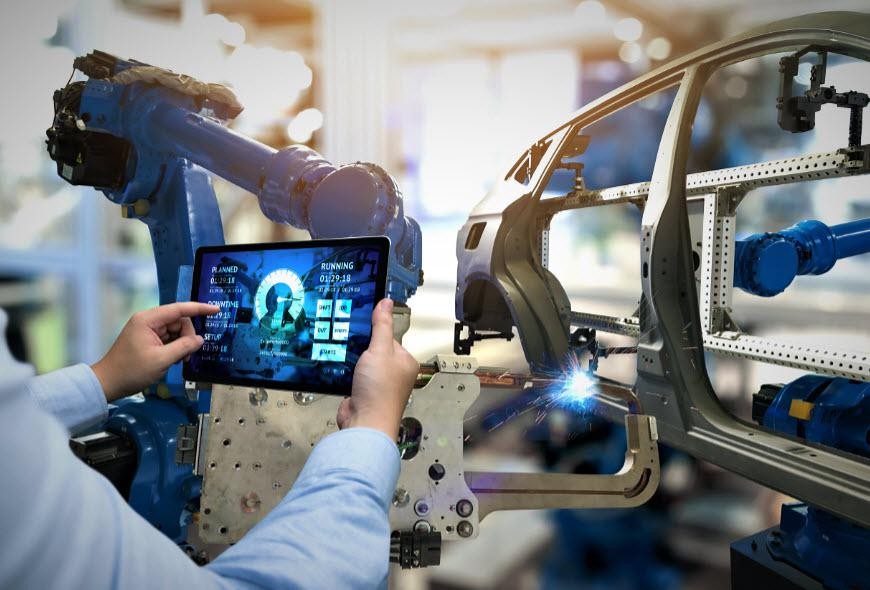In the rapidly evolving world of technology, the integration of AI in component testing is revolutionizing how industries approach quality assurance. This transformation is crucial for ensuring that products meet the highest standards of quality and reliability. As we delve into the intricacies of AI in component testing, we uncover its profound impact on efficiency and precision.

Understanding AI in Component Testing
Component testing is a critical phase in the product development lifecycle, aiming to verify that individual parts function correctly. The incorporation of AI into this process enhances accuracy and reduces human error, making it a vital tool for quality assurance teams. By leveraging AI, companies can streamline testing processes, cut costs, and improve product quality.
The Role of AI in Enhancing Accuracy
AI algorithms are designed to identify patterns and anomalies that might be missed by human testers. This capability is particularly valuable in component testing, where minute errors can lead to significant issues if left unchecked. By using machine learning models, AI can predict potential failures and suggest corrective measures, ensuring that components perform as expected.
Efficiency Gains in Testing Processes
One of the most significant advantages of employing AI in component testing is the dramatic increase in efficiency. AI-powered tools can conduct tests at a much faster rate than humans, enabling companies to accelerate their product development cycles. This rapid testing capability is essential in industries where time-to-market is a critical factor.
AI Applications in Various Industries
The application of AI in component testing is not limited to a single industry. From automotive to electronics, AI is making waves across various sectors, each benefiting from its unique capabilities. For instance, in the automotive industry, AI is used to ensure the quality and safety of critical components, enhancing overall vehicle reliability. Automotive quality control has been significantly improved with AI technologies.
AI in Semiconductor Testing
In the semiconductor industry, where precision is paramount, AI aids in identifying defects and ensuring that microchips meet stringent quality standards. The use of AI in this sector has led to a reduction in waste and an increase in production efficiency. Discover more about semiconductor quality control advancements.
AI in Metal Part Inspection
Similarly, in metal part manufacturing, AI technologies assist in inspecting and verifying the integrity of components. This process minimizes defects and ensures that parts meet industry specifications. If you’re interested in learning more, visit metal parts inspection.
Challenges and Considerations
While the benefits of AI in component testing are undeniable, there are challenges that companies must address. Data privacy, the need for skilled personnel, and the initial investment in AI technologies are some of the hurdles that need careful consideration. However, as AI technology continues to evolve, these challenges are becoming more manageable.
Overcoming Data Privacy Concerns
Data privacy is a significant concern when implementing AI in testing processes. Companies must ensure that sensitive data is protected and that AI systems comply with relevant regulations. Proper data management protocols and robust security measures are essential in mitigating these concerns.
Training and Workforce Development
The adoption of AI technologies necessitates a skilled workforce capable of managing and maintaining these systems. Investing in employee training and development is crucial to maximizing the benefits of AI in component testing. By equipping employees with the necessary skills, organizations can ensure a seamless transition to AI-powered testing processes.
The Future of AI in Component Testing
The future of AI in component testing looks promising, with continuous advancements in technology paving the way for even greater efficiencies and capabilities. As AI algorithms become more sophisticated, their ability to detect defects and improve product quality will only increase. This evolution will undoubtedly lead to a new era of innovation in quality assurance.
Integration with Other Technologies
The integration of AI with other emerging technologies, such as the Internet of Things (IoT) and blockchain, will further enhance component testing processes. These technologies can provide real-time data and secure, transparent tracking of testing results, offering invaluable insights for quality assurance teams.
Expanding AI Capabilities
As AI technologies continue to advance, their applications in component testing will expand, offering new possibilities for industries worldwide. The ongoing development of AI-driven tools and platforms will provide organizations with even more powerful resources to ensure product quality and reliability.
Conclusion
In conclusion, the integration of AI in component testing is transforming the landscape of quality assurance. By enhancing accuracy, efficiency, and adaptability, AI offers a wealth of benefits for industries seeking to improve their testing processes. As companies continue to embrace AI, the future of component testing looks brighter than ever.

Frequently Asked Questions
What is AI in component testing?
AI in component testing involves using artificial intelligence technologies to enhance the accuracy and efficiency of testing individual components in a product, ensuring they meet quality standards.
How does AI improve testing efficiency?
AI improves testing efficiency by automating repetitive tasks, analyzing data faster than humans, and identifying potential defects with greater accuracy, ultimately reducing the time required for testing.
What industries benefit from AI in component testing?
Industries such as automotive, semiconductor, and metal manufacturing benefit significantly from AI in component testing, as it helps ensure product quality, reliability, and safety.
For more insights, you can explore the benefits of AI in manufacturing on this external link.
This article contains affiliate links. We may earn a commission at no extra cost to you.

